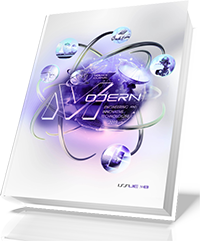LANGUAGE AS A TOOL OF CULTURAL EXPANSION
DOI:
https://doi.org/10.30890/2567-5273.2023-25-03-061Keywords:
authenticity, english-speaking Indian philosophy, language picture of the world, national identity, Thomas MacaulayAbstract
In the article, the authors consider the problem of using language as a means of expansion and subjugation. This problem is analyzed on the example of the educational reform of the British politician T. Macaulay, aimed at the Anglonization of the IndianReferences
Bhushan, N., & Garfield, J. L. (2017). Minds Without Fear: Philosophy in the Indian Renaissance. Oxford: Oxford University Press. https://doi.org/10.1093/oso/9780190457594.001.0001
Bhushan, N., & Garfield, J. L. (2011). Indian Philosophy in English: From Renaissance to Independence. Oxford: Oxford University Press. https://doi.org/10.1093/acprof:osobl/9780199769261.001.0001
Heidegger, M (1998). Pathmaks. Cambridge: Cambridge University Press. Retrieved from https://ru.ua1lib.org/book/1106464/a854e1?dsource=recommend
Humboldt, V. (1984). Selected works on language (G. V. Ramyshvili, Trans.). [In Russian]. Moscow: Progress.
Macaulay, T. B. (1835). Minute on Education. Retrieved from http://www.columbia.edu/itc/mealac/pritchett/00generallinks/macaulay/txt_minute_education_1835.html
Potebnia, A. (1892). Thought and language. [In Russian]. Kharkiv: Printing house of Adolf Darre, 28 Rybnaya Street.
Retrieved from https://www.gumer.info/bibliotek_Buks/Linguist/poteb/index.php
Shynkaruk, V., Bystrytskyi E. (eds.) (1996). The phenomenon of Ukrainian culture: methodological foundations of understanding. National Academy of Sciences of Ukraine, Institute of Philosophy. [In Ukrainian]. Kyiv: Fenix, 1996.
Downloads
Published
How to Cite
Issue
Section
License
Copyright (c) 2023 Authors

This work is licensed under a Creative Commons Attribution 4.0 International License.






